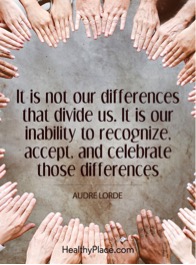Have you ever thought about how many different people there are in the world? Or how many languages are spoken on this planet? What about the differences in rituals, customs and traditions?
The most important question we could ask ourselves is, “just because somebody believes, behaves and speaks differently, is there nothing in common between us?” We all carry, within ourselves, emotions and feelings such as love, joy, hope, trust, resentment, sadness, fear and pain.
Everyone everywhere belongs to a family. We are all somebody’s son or daughter, brother or sister. Today our friends are from our school and neighbourhood. But one day, soon, we could befriend somebody from England, USA, Bhutan, or Singapore. We can tell them about Pongal, Lohri, Eid and Dussehra. They can tell us about Lent, Hanukkah and the Chinese New Year.
The more we learn about the people in different countries, the more we understand and appreciate them. We will be able to recognize our similarities and accept our differences. The art of living is to rejoice in both.
A) Vocabulary: Please make sentences with the following words:
Ritual – Ceremony with a set of fixed actions and words
Tradition – Custom, belief story that is passed on through generations
Appreciate – To be grateful for something
Superficial – Only seen on the surface
Similarity/Similar – Alike or like something or someone else
B) Mentor and mentee to decide together what country they would like to discuss or write a few lines about.
C) Match the language with the country:
Mexico Urdu, (Sindhi, Punjabi, Pashto, and Balochi)
Brazil German
France Portuguese, (180 indigenous languages!)
Germany Spanish (287 distinct languages!!)
Pakistan French
D) Fill in the Blanks:
- The only way I can go to Spain is ____ plane.
- Many tourists from around the world come ___ India.
- India is a part ___the continent called Asia.

Audio courtesy Tara Kriplani:
